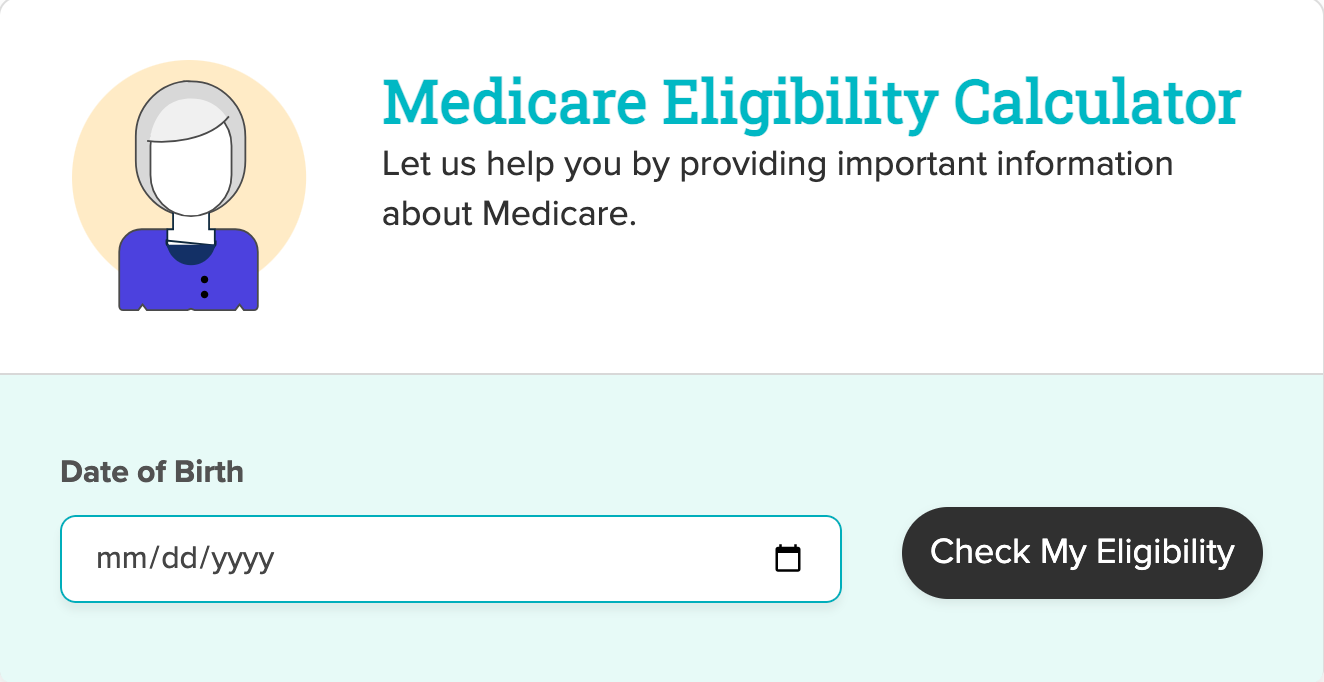Maybe you already know that most Americans need to be at least 65 to enroll in Medicare, the health insurance program for older adults run by the U.S. Federal Government.1 To qualify, you must also be a U.S. citizen or have been a legal resident of the U.S. for at least five years.2
Some people, though, are eligible for Medicare before age 653 and some choose to delay enrolling (more on both of these situations below).
When Are You Eligible to Enroll in Medicare?
You can apply for Medicare during several enrollment periods.
The first, Initial Enrollment Period (IEP), includes the three months before your 65th birthday, the month of your 65th birthday and the three months after your 65th birthday.4
If you didn’t apply for Medicare within the seven months surrounding your 65th birthday, the window to apply opens again at the beginning of each year, from January 1 to March 31 (what’s called the General Enrollment Period). But keep in mind that if you enroll during the GEP, your actual Medicare coverage won’t begin until July of that year.5
If you or your spouse paid Medicare taxes for 10 years or more, you’re eligible for premium-free Medicare Part A (hospital insurance). If, though, you or your spouse worked for less than a decade, you will still qualify for Medicare but you may need to pay a monthly premium for Part A, which will be based on how long you or your spouse worked.
Everyone who enrolls in Medicare Part B (medical insurance) is required to pay a monthly premium. The standard premium for 2021 is $148.50, those who are considered higher-income beneficiaries will pay more.
And if you opt for Medicare Part D (prescription drug coverage), you may pay a premium, depending on how you get the coverage. This can be through a standalone drug plan or as part of a Medicare Advantage (aka Medicare Part C) that includes drug coverage.
What If You’re Over 65?
Don’t worry: You can still sign up for Medicare if you didn’t do so at age 65. But you may have to pay a 10% penalty on the monthly premiums for Part B for every 12-month period you didn’t opt in for Medicare coverage after becoming eligible.
There is an exception, though: If you have group coverage through your employer’s plan or were covered through your spouse’s job and that coverage ends, you qualify for what’s called a Special Enrollment Period (SEP). This is an 8-month period during which you can sign up for Part A and/or Part B to give you coverage starting when your or your spouse’s employer’s coverage ends.
Less commonly, if you didn’t work long enough to qualify for premium-free Part A and you didn’t sign up at age 65, you may have to pay a penalty for that coverage as well.6
What If You’re Younger than 65?
Special circumstances do qualify some people for enrollment in Medicare before they turn 65.
- If you have end-stage renal disease (ESRD), you’re generally eligible for Medicare three months after you begin dialysis or as soon as you have had a kidney transplant.7
- If you have a disability and are receiving Social Security Disability Insurance (SSDI) benefits, you’re eligible for Medicare 24 months after these benefits begin.
- If you have the degenerative condition called amyotrophic lateral sclerosis (ALS, also known as Lou Gehrig’s Disease), you’re eligible for Medicare as soon as your SSDI benefits begin.8
Medicare offers excellent health benefits for millions of Americans — knowing all your options will help you choose the right time to sign up.


